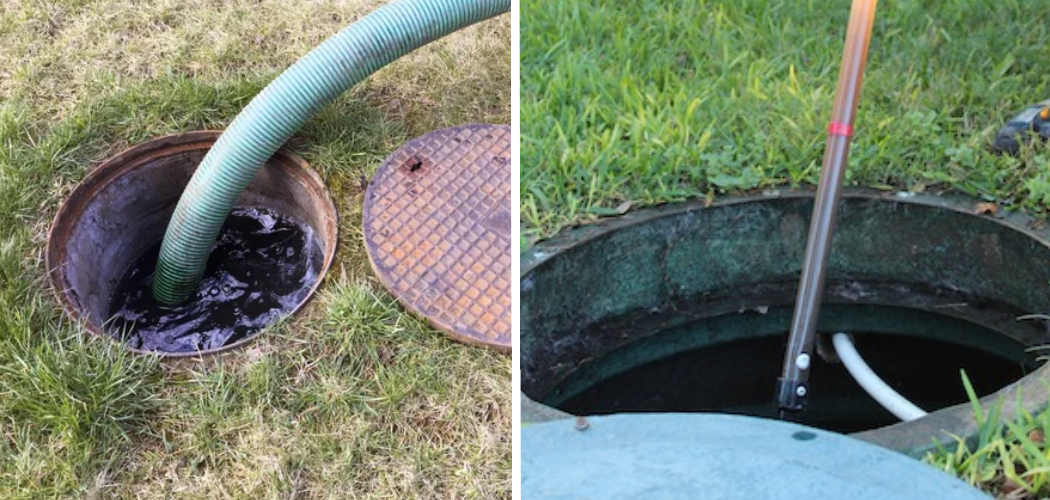If your home is not connected to a municipal sewer system and relies on a septic tank, it’s important to know when the septic needs to be pumped. Failing to do so can lead to serious consequences, including raw sewage backing up into your home.
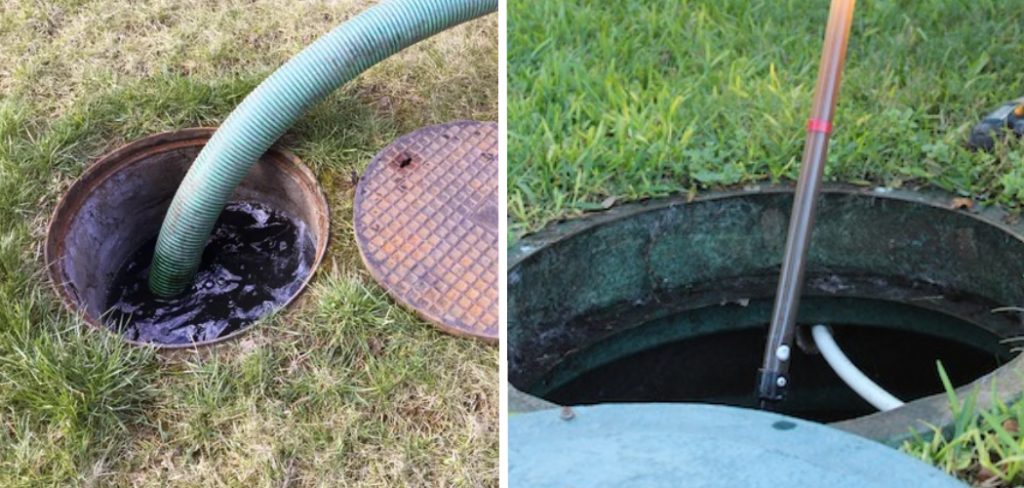
If you have a septic tank, it’s important to know how to tell if it needs to be pumped. Depending on the size of your tank and its use, septic tanks need to be pumped every two to five years. If you’re not sure when the last time your tank was pumped, or if you think it may be time for another pumping, there are a few things you can look for. In this blog post, You will learn in detail how to tell if your septic needs pumped.
Step-by-Step Processes for How to Tell if Your Septic Needs Pumped
Step 1: Determine How Long Your Tank Last Got Pumped
If you don’t know how long it has been since your tank was pumped, ask your septic service provider for records or look for the date of the last pump on the lid of your tank. Tanks typically need to be pumped every three to five years, but the interval depends on the size of your tank and the number of people in your household.
Step 2: Look for Water Pooling Around Your Tank.
If you see water pooling around your septic tank, it’s a sign that your tank is full and needs to be pumped. The drain field is the area where effluent from your septic tank is dispersed. If the drain field is flooded or saturated, it’s a sign that your tank needs to be pumped.
Step 3: Look for Slow drains or Toilets
If you notice that your drains are draining more slowly than usual or your toilets are backing up, it could signify that your septic tank is full and needs to be pumped.
Step 4: Inspect Your Septic Tank.
If you have an inspection port on your septic tank, open it up and take a look inside. If the water level is higher than the outlet pipe, it’s a sign that your tank needs to be pumped. If you notice a sewage smell around your property, it could signify that your septic tank is full and needs to be pumped.
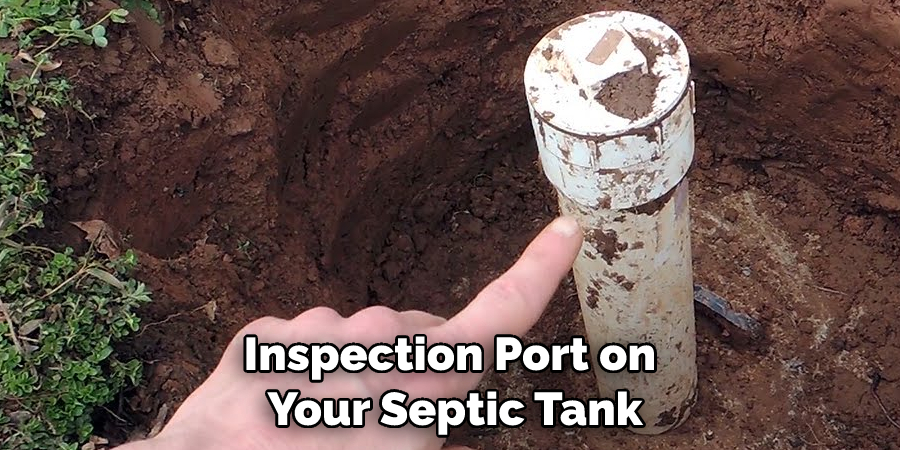
Step 5: Have Your Septic Tank Professionally Inspected
If you’re unsure whether your septic tank needs to be pumped, it’s always a good idea to have it inspected by a professional. They will be able to tell you for sure if your tank needs to be pumped and can give you advice on how often you should have your tank pumped in the future.
Step 6: Pump Your Septic Tank
If your septic tank needs to be pumped, hire a professional septic service to do the job. They will pump out the sewage from your tank and dispose of it properly.
Step 7: Clean Your Septic Tank
After your septic tank is pumped, it’s also a good idea to have it cleaned. This will remove any build-up of sludge or scum from the walls of your tank.
Step 8: Maintain Your Septic Tank
To prevent your septic tank from needing to be pumped too often, it’s important to maintain it properly. Have your septic tank inspected and cleaned regularly, and don’t flush anything down the drain that could clog or damage your system. By following these steps, you can keep your septic tank running smoothly for years to come.
You Can Check It Out to Find My Septic Tank Lid
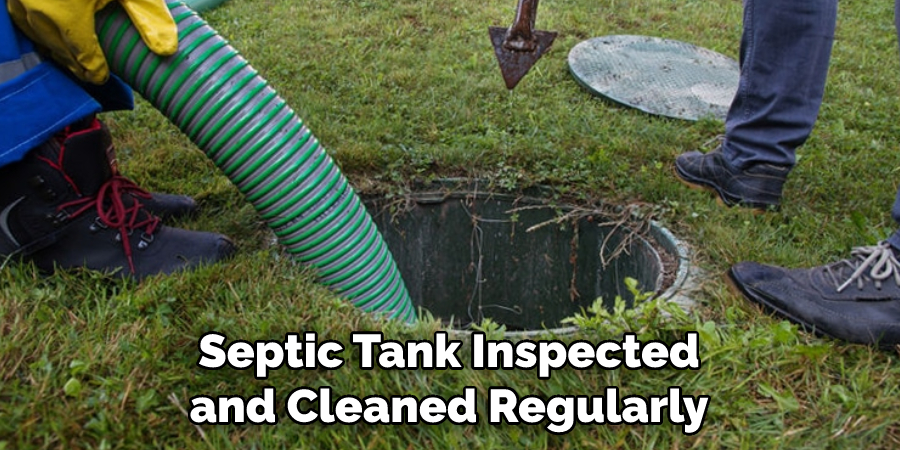
Tips for How to Tell if Your Septic Needs Pumped
- Check your toilets for slow flushing or backup. If you notice either of these, it could signify that your septic tank is full and needs to be pumped.
- Inspect your drains for any clogs or backups. If you see any, this could also indicate that your septic tank is full and needs to be pumped.
- Look for standing water around your septic tank or yard. This could indicate that your septic system is not functioning properly and needs to be serviced.
- Check for any strong odors coming from your septic tank or drains. This indicates that your septic system is not functioning properly and needs to be serviced.
- Look for any lush or green areas in your yard. This could indicate a leak in your septic tank or system and should be investigated immediately.
- Check for any sinkholes or depressions in your yard. These could also be signs of a leak in your septic tank or system and should be investigated immediately.
- Have your septic tank regularly inspected by a professional. This will help you to catch any problems early on before they become too serious.
- Know the warning signs of a septic tank failure, such as sewage backing up into your home or water pooling in your yard. If you see any of these signs, call a professional immediately.
- Pump your septic tank every three to five years or as needed. This will help to prevent any problems with your septic system and keep it functioning properly.
- Follow these tips and have your septic system regularly serviced to avoid any major problems down the road. If you do have a problem with your septic system, call a professional immediately to have it serviced.
How Can You Prevent Your Septic Tank From Needing to Be Pumped?
You can help keep your septic tank from needing to be pumped by doing the following:
- Have your septic tank inspected regularly. Your septic professional can tell you how often you need an inspection, but it is generally recommended that you have one every three to five years.
- Pump your septic tank as often as your septic professional recommends.
- Dispose of household hazardous wastes properly. Do not pour them down the drain.
- Use water efficiently. Limit your use of the dishwasher, clothes washer, and other water-using appliances. Fix leaks promptly.
- Limit or avoid using chemical cleaners, drain cleaners, and harsh chemicals in general. These can damage the natural bacteria in your septic tank that break down waste.
- Do not drive or park on your septic system. This can damage the tank and the leach field.
Following these tips can help keep your septic system healthy and working properly for many years.
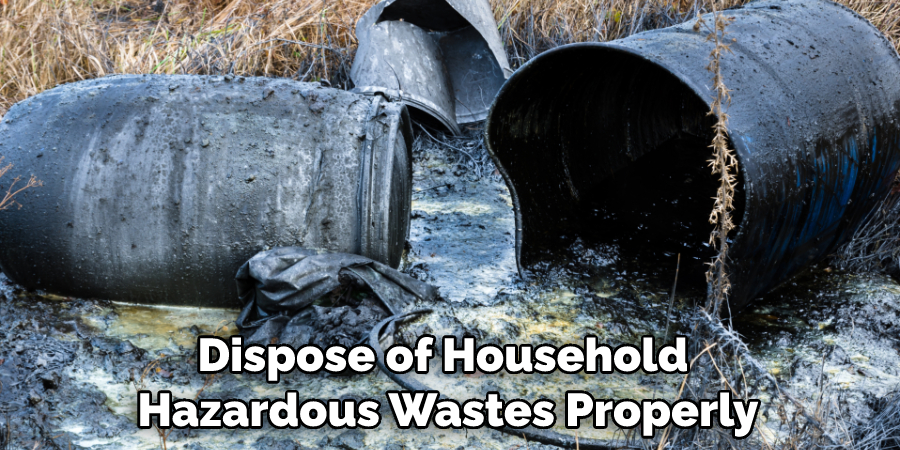
What Happens if You Don’t Pump Your Septic Tank?
If you don’t pump your septic tank, the solid waste will eventually build up and block the pipes leading to and from the tank. This can cause sewage to back up into your home or yard or even overflow from the tank itself. In addition, the built-up waste will start to decompose, which can create odors and attract pests. Pumping your septic tank regularly is the best way to avoid these problems.
How Much Does It Cost to Pump a Septic Tank?
The cost of pumping a septic tank varies depending on the size of the tank, the location, and the company you hire. Generally, it costs between $200 and $500 to pump a septic tank. Some companies may charge more or less, so be sure to get an estimate before hiring someone.
If you think your septic tank needs to be pumped, there are a few signs you can look for. First, check the area around your septic tank. If there is standing water or an unpleasant smell, this could be a sign that your tank needs to be pumped. Another sign is if your drains are backing up. This could mean that there is too much waste in your septic tank, and needs emptying.
If you’re unsure whether your septic tank needs to be pumped, you can always contact a professional for an inspection. They will surely tell you if your septic tank needs to be pumped and how much it will cost.
Do You Need a Professional to Pump Your Septic Tank?
Most people know that their septic tank needs to be pumped every few years, but many don’t know how to tell when it’s time for pumping. Luckily, there are some easy ways to tell if your septic needs to be pumped or if it can wait a little longer.
One of the most obvious signs that your septic tank needs to be pumped is if your toilets are backing up. If water starts coming up in your toilets or drains when you flush or use them, then it’s a good idea to have your septic tank checked out. Another sign that your septic tank is getting full is if you notice that your drains are draining more slowly than usual. If it takes a long time for water to go down your drain, that means that your septic tank is full and needs to be pumped.
If you have a garbage disposal, that can also affect how quickly your septic tank fills up. If you use your garbage disposal frequently, you might need to have your septic tank pumped more often than someone who doesn’t use it as much. You should also be careful about what you put down your garbage disposal. Some things, like grease, can clog up your septic tank and cause problems.
If you’re unsure whether your septic tank needs to be pumped, you can always call a professional to come and take a look. They’ll surely tell you whether or not your septic needs to be pumped and can advise on how to take care of it.
You Can Check It Out to Fix a Running Toilet Without a Ball Float
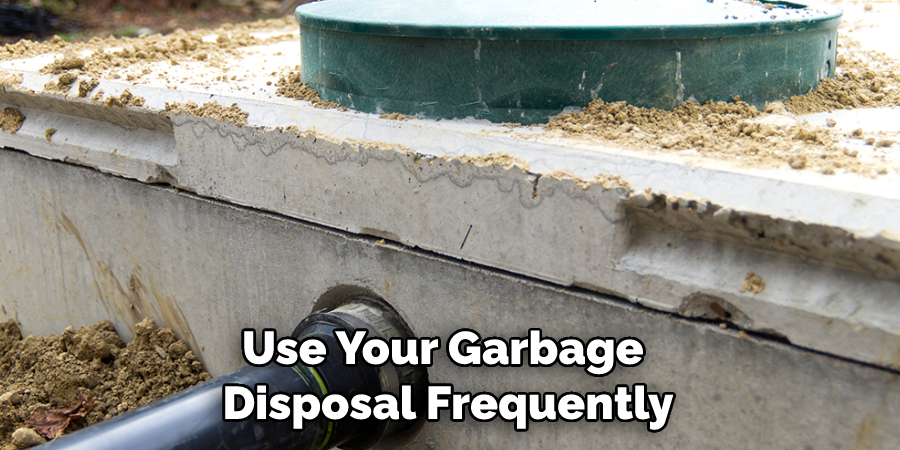
What Are the Benefits of Pumping My Septic Tank?
Regular septic tank pumping is important for the following reasons:
- It prevents solids from building up in the tank and eventually overflowing into the drain field.
- Reduces the chance of clogging and backup.
- It helps to extend the life of your septic system.
- Reduces the chance of costly repairs.
- It helps to keep your system working properly.
If you are unsure how often your septic tank needs to be pumped, it is best to consult with a professional. They will be able to assess your individual situation and give you specific advice. Generally speaking. However, having your septic tank pumped every three to five years is a good idea.
Conclusion
If your septic system is not working properly, it is important to pump it as soon as possible. There are a few signs that you can look for to tell if your septic needs to be pumped.
The first sign is if your toilets are backing up or if there is sewage from the drains. This signifies that the septic system cannot handle the waste and needs to be pumped. Another sign is if there is an odor coming from the drains or the septic tank. The build-up of sewage causes this and can be a health hazard.

